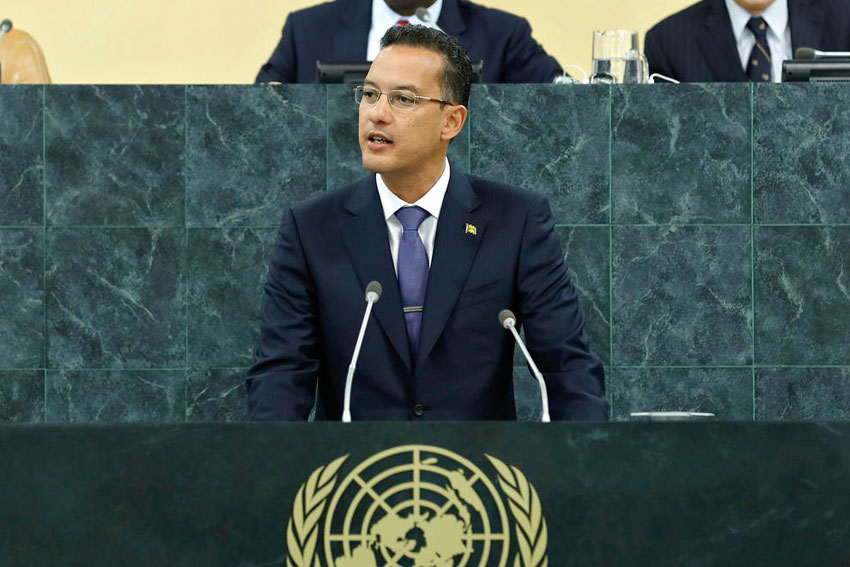‘Green economy’ key to advancing Barbados’s sustainable development agenda
A policy of sustainable development is a matter of survival for Barbados, its Minister today told the United Nations General Assembly, highlighting also debt sustainability and efforts to support the international financial service sector.
In her statement, the Minster of Foreign Affairs and Foreign Trade, Maxine Pamela Ometa McClean, noted that Barbados has special needs as a small island developing State (SIDS), and that its development is inextricably linked to ocean resources.
She quoted Prime Minister Freundel Stuart who had said that “the green economy debate recognizes our structural vulnerabilities, offers a model to assist us in further realising our sustainable development aspirations and creates the institutional platform that would enable us to participate in innovative partnerships in the fight to save our planet, against mounting unsustainable consumption and production patterns.”
SIDS, as a group, has made less progress than many other groupings on the anti-poverty targets known as the Millennium Development Goals (MDGs), Ms. McClean noted.
Of particular concern, she said, was poverty reduction and debt sustainability which remains a “major constrains to SIDS achieving sustainable development.”
She urged the international community to convene a special meeting for SIDS related to debt sustainability ahead of the Third International Conference to be held September 2014 in Samoa.
Turning to financial services sector, Ms. McClean said the sustainability of the country’s development “is being stymied by efforts to undermine this very important sector.”
She stressed that the sector is “well regulated” and has sought at all times to comply with international rules and best practice.
“It is our intention to operate within the established international norms which have guided this sector to date,” Ms. McClean told world leaders gathered at the high-level debate which wraps up tomorrow.

Nickolas Steele, Minister for Foreign Affairs and International Business of Grenada. UN Photo/Amanda Voisard
Nickolas Steele, Minister for Foreign Affairs and International Business of Grenada, another island nation, noted that the volatility and high-prices for fossil fuel important contribute to the indebtedness and fiscal instability of small island States.
On average, SIDS pay 20 cents to 40 cents per kilo-watt hour of electricity and sometimes as much as $1, Mr. Steele said, compared with 5 cents to 15 cents in developed countries.
One of Grenada’s key priorities is the dismantling of monopoly contributing to the high energy costs on the island and investing more in creating a green energy.
The Government is seeking private partners to have a role in innovative and sustainable power-generation solutions, and pushing to harmonize local laws with international environmental agreements.
“The causes of climate change and the impacts of climate change are negatively affecting Grenada’s ability to fulfil its social contacts with its people including its ability to fully deliver on the MDGs,” said Mr. Steele.
In his statement, the Minister called for a post-2015 framework that goes “beyond GDP” and a “more holistic and comprehensive set of indicators for classifying States.”

